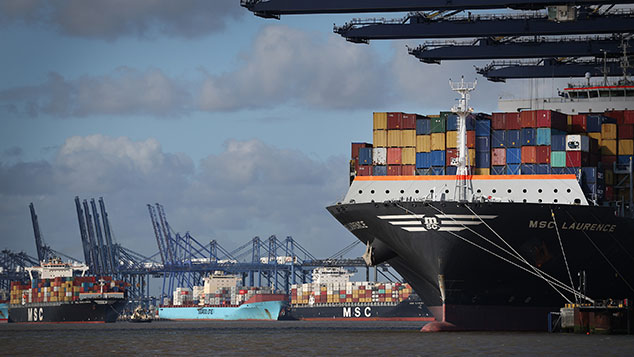
One of the big questions at the moment is whether Britain should leave the EU customs union. At the moment, Britain has a common trade policy with the other 27 members, so any country agreeing a trade deal with the EU has to treat all 28 members the same way (and vice versa). Some people feel that leaving the EU customs union would be a mistake, but Warwick Lightfoot, director of economic and social policy at the Policy Exchange think tank, sees it as a opportunity. He’s recently released a report calling for the UK to fully embrace free trade.
Lightfoot’s argument is that current trade policy is dominated by a mercantilist mindset that focuses on maximising exports from the UK. However, he argues that economic theory suggests that the biggest gains from trade come from cheaper imports because they “enable us to take advantage of the international division of labour and expose the domestic economy to competition”. The UK government, he says, should use Britain’s exit from the EU to abolish all external tariffs, especially in the areas of agriculture, textiles and manufactured goods such as cars.
For over six decades, says Lightfoot, the US has pushed to get countries around the world to open their markets to global competition. In contrast, the EU has been working hard to build up protectionist barriers to defend “vested commercial interests”. Brussels’ desire to protect domestic producers is so strong that it imposes high tariffs even on exotic foods that aren’t grown in Europe. The sectors that aren’t protected by high trade barriers, which can be as much as 20%, are distorted through badly applied agricultural subsidies to domestic producers.
This approach doesn’t even fulfil its stated goals of ensuring that domestic farmers can earn a decent living. After WWII, the British government established a system (known as the “Deficiency Payment System”) that exposed domestic farming to foreign competition, while still ensuring that family farmers received enough subsidy to stay in business. This combination of competition and intelligent subsidy meant that domestic consumers had access to cheap food, while British agriculture became one of the most efficient systems in the world. Fast forward to today and “80% of subsidies go to the 20% largest producers” while “the average age of farmers has risen to 57”.
While Lightfoot is reluctant to put a hard figure on the benefits from unilateral liberalisation, he estimated that this policy could boost GDP by around 2%-5%. It could also help reduce inequality by cutting the prices of basic goods and commodities, especially those that are bought most heavily by people on low incomes. After all, “at the moment policymakers don’t hear from those who shop at Aldi and Lidl”. Lightfoot also notes that tariffs and quotas are highest on the low-cost cars produced in Malaysia, South Korea and China, rather than on the luxury cars bought by more affluent consumers.
Lightfoot is sceptical about the argument that leaving the EU customs union will lead to a huge increase in the need for additional checks at ports, to prevent Britain being used as a backdoor into Europe. From talking to senior figures at various ports, he reckons that at the moment only around 2% of goods from outside the EU are inspected. This is not that much greater than the proportion of EU goods that are checked as part of health and safety inspections and intelligence-led searches for contrabrand (such as illegal drugs).
Inevitably, some parts of the economy will be initially disrupted by such a radical change in trade policy, so there’s a case “for the government temporarily compensating the losers from the removal of trade barriers”. After all “you have to give people time to adjust, especially if they have invested in equipment”. However, he is adamant that “manufacturing and agriculture will not survive in the long run unless you expose them to global competition”. Abolishing trade barriers doesn’t necessarily preclude free trade agreements, as Hong Kong and Singapore have managed to get countries to abolish tariffs of their goods, even without the stick of threatening tariffs.